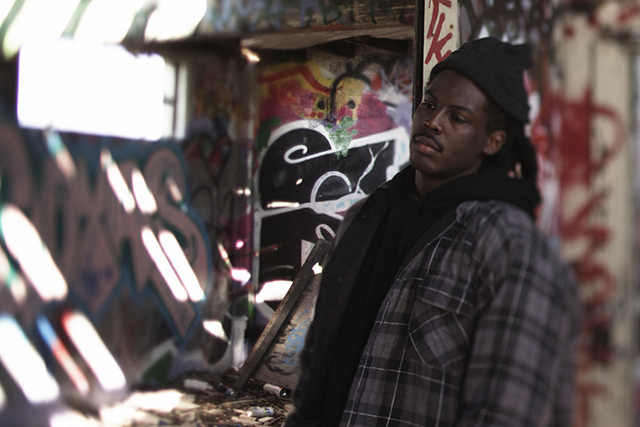 So much of what ails the Black American community occurs in cycles. Blatant and institutionalized racism has led to poverty, mass incarceration, gang violence, and so may other problematic issues. Unfortunately, these problems occur time and time again, because the root of what is broken remains unfixed.
So much of what ails the Black American community occurs in cycles. Blatant and institutionalized racism has led to poverty, mass incarceration, gang violence, and so may other problematic issues. Unfortunately, these problems occur time and time again, because the root of what is broken remains unfixed.
Produced by acclaimed director Antoine Fuqua, Jamal Joseph's "Chapter & Verse" is a film about terrible cycles, chances of redemption, and most importantly, it’s a film about fatherhood in the Black community.
Compassionately played by actor Daniel Beaty, (who also co-wrote the screenplay with Jamal Joseph), the film follows S. Lance Ingram aka Crazy L from 118th, on his quest for a fresh start. Newly released from prison after an eight year sentence, Lance has returned home to Harlem, NY; a neighborhood that has been drastically transformed since his initial imprisonment. Harlem was once a neighborhood fully of violence and impoverishment; ramifications form the crack cocaine epidemic and the War on Drugs. However, gentrification has quickly given much of the area a complete overhaul. Living in a halfway house, Lance attempts to get work by using the computer technology skills that he’s acquired in prison. Instead, he is only able to find employment at a soup pantry, washing dishes and delivering meals to those in need.
On one of his runs, Lance encounters Miss Mandy (played exceptionally by veteran actress Loretta Devine) and the duo strike up an unlikely friendship. As Lance works to redefine himself in society, and make the best of his second chance, he continually encounters Miss Mandy's troubled 15-year old grandson Ty, who is involved in the small but dangerous Harlem street gang, The Runners.
Since Miss Mandy can’t seem to get through to Ty, Lance takes it upon himself to try and show the angry young man some direction. He understands all too well the path that Ty is going down, and he tries desperately to get him to walk away. What is poignant about Lance and Ty’s relationship are the quiet moments. They observe one another often. Ty unwittingly looks to Lance as a guide, an example of manhood, while Lance is constantly considering how he should approach Ty. It’s a dynamic that is often glossed over when discussing the relationship between Black men and boys. And yet, Joseph captures it perfectly onscreen.
Continue reading at Shadow and Act.
Image: Chapter & Verse Film





